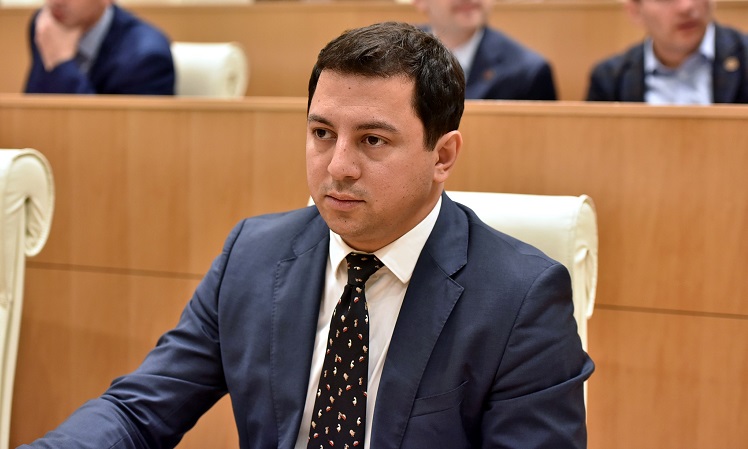Parliament Vice Speaker claims radical” opposition has “used youth for political purposes” at protest rallies

Talakvadze said it was “necessary to find out who encouraged” the violent developments during the protest rallies, where demonstrators clashed with law enforcement outside the Parliament building in the capital. Photo: Parliament of Georgia
Archil Talakvadze, the Georgian Parliament’s Vice Speaker, on Monday claimed the “radical” domestic opposition had “used the youth for their political purposes” during last month’s protests in Tbilisi against the proposed bill on transparency of foreign influence.
Talakvadze said it was “necessary to find out who encouraged” the violent developments during the protest rallies, where demonstrators clashed with law enforcement outside the Parliament building in the capital.
The radical opposition and the media affiliated with them are trying to convince the public that pouring gasoline on people, setting them on fire, burning cars bought by citizens' taxes, setting fire to the Parliament building can be justified by judging a person's biography and appearance. They are taking this issue in an absolutely damaging way, unacceptable for democracy and free society”, the Parliament official said in reference to arrests made following the clashes.
The official also accused a part of the opposition of having “stood in the back row of the rallies, hid behind the youth, used the youth for their political purposes” before going “into hiding” and leaving young demonstrators “when the protest reached its climax”.
It is necessary to find out - and the investigation should determine - who were the instigators of this violence. Not only those who committed them, but those who encouraged all this should also appear, and they should also take political responsibility”, he concluded.
The Georgian Interior Ministry made arrests during the protests between March 7-9 which resulted in the ruling Georgian Dream party withdrawing the bill that called for registration of non-commercial legal entities and media outlets in the country as “agents of foreign influence” if they derive more than 20 percent of their funding from abroad.
The controversial legislative proposal was met with a backlash by domestic opposition, civil sector and diplomatic representations in the country, as well as the public rallies outside the legislative body before it was shelved.
 Tweet
Tweet  Share
Share